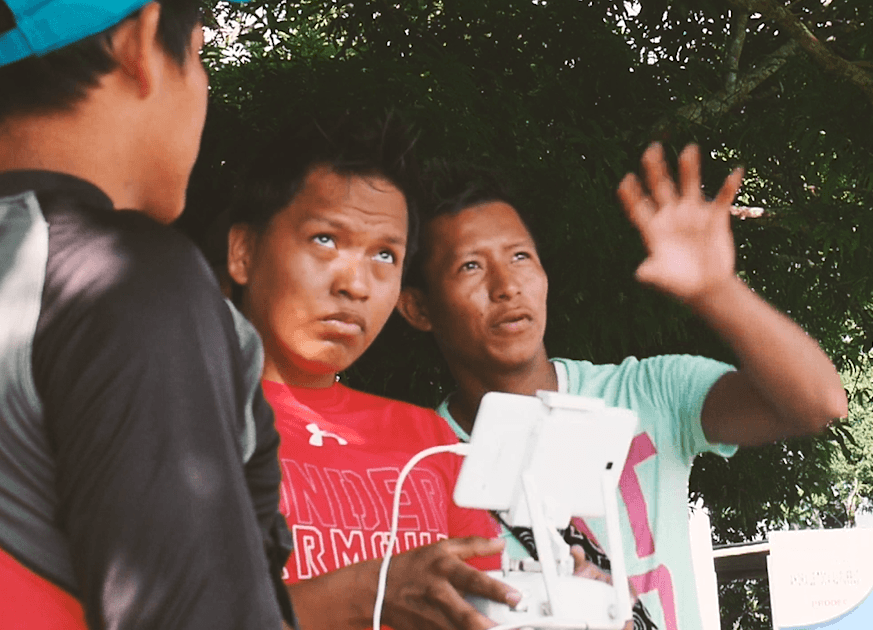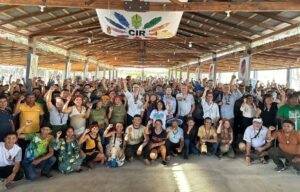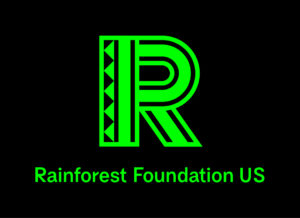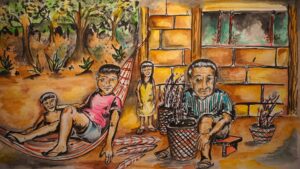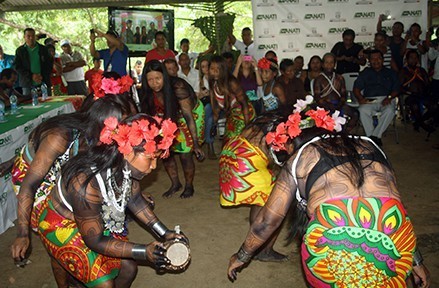Achieving #LandRightsNow!
Christine Halvorson, Program Director at Rainforest Foundation US, shares her thoughts and support for the Land Rights Now movement.
I’ve been excited to read a heap of recent studies that show the important role that indigenous peoples play in protecting rainforests. A new study by Rights and Resources Initiative adds even more evidence—and lays bare the need for governments to do more to recognize indigenous and community land rights.
The report finds that “Communities and Indigenous Peoples are estimated to hold as much as 65 percent of the world’s land area under customary systems”, but “only 18 percent of land area in the countries studied is formally recognized as owned or controlled by local communities and Indigenous Peoples.” The gap in recognition is shocking, and shows how much work we all have cut out for us.
To this end, various organizations are launching a Global Call to Action, aimed at doubling the global area of land recognized as owned or controlled by indigenous peoples and communities by 2020. Join the Land Rights Now network and check out #LandRightsNow on social media. I’ve signed up already!
Rainforest Foundation US (RFUS) has worked with indigenous peoples for over 25 years to obtain their land rights. As #LandRightsNow trends, RFUS would like to share a few of the lessons we’ve learned about achieving legal recognition of indigenous peoples’ lands.
How We Work
It’s a long-term strategy: Obtaining land rights takes years. Land demarcation and titles are most often the result of decades of struggle by local communities consistently demanding their territorial rights. Our support must therefore be long-term.
It takes a multiplicity of approaches: Gaining land recognition is not just about filing papers; it usually takes various different efforts. These include:
- Constant community meetings and consensus-building
- Community mapping to determine boundaries and negotiate with neighbors
- Legal work
- Advocacy and policy work: meetings with government officials at local, regional, and national levels
- In a number of cases, international advocacy, campaigns, and the use of international declarations, courts, and agreements
This means that our support, as allies and funders, must be both flexible and comprehensive.
Organizational strengthening is key: Both the struggle for land rights and consolidating those rights with sustainable, long-term protection takes strong organizations. Indigenous organizations are frequently over-burdened and under-resourced. Without strong leaders, clear strategy, transparency, and accountability to their communities, organizations can have a hard time sustaining their work over the long-term. Donors should provide ongoing organizational support, both financial, and when asked for, technical.
Read More
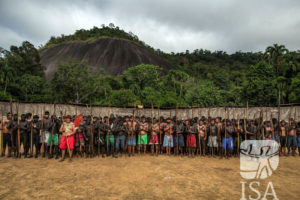
Murder of Two Yanomami by Illegal Miners Heightens Fears of Renewed Cycle of Violence in the Brazilian Amazon
The murders reinforce the need for the Brazilian government to immediately expel the more than 20,000 miners illegally operating on Yanomami land.
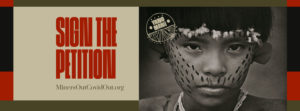
Miners Out, COVID-19 Out: The Yanomami and Ye’Kwana People of the Brazilian Amazon Launch a Global Campaign to Expel Miners From Their Territory
Indigenous leaders demand the urgent removal of 20,000 illegal gold miners from their lands to prevent the spread of COVID-19
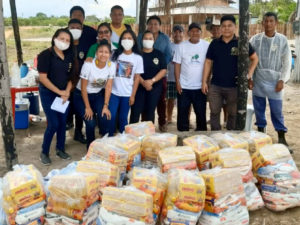
Voices from the Ground: COVID-19 Response in Roraima, Brazil
An interview with the Legal Advisor for the Indigenous Council of Roraima about adressing COVID-19 in his territory.
Support Our Work
Rainforest Foundation US is tackling the major challenges of our day: deforestation, the climate crisis, and human rights violations. Your donation moves us one step closer to creating a more sustainable and just future.


